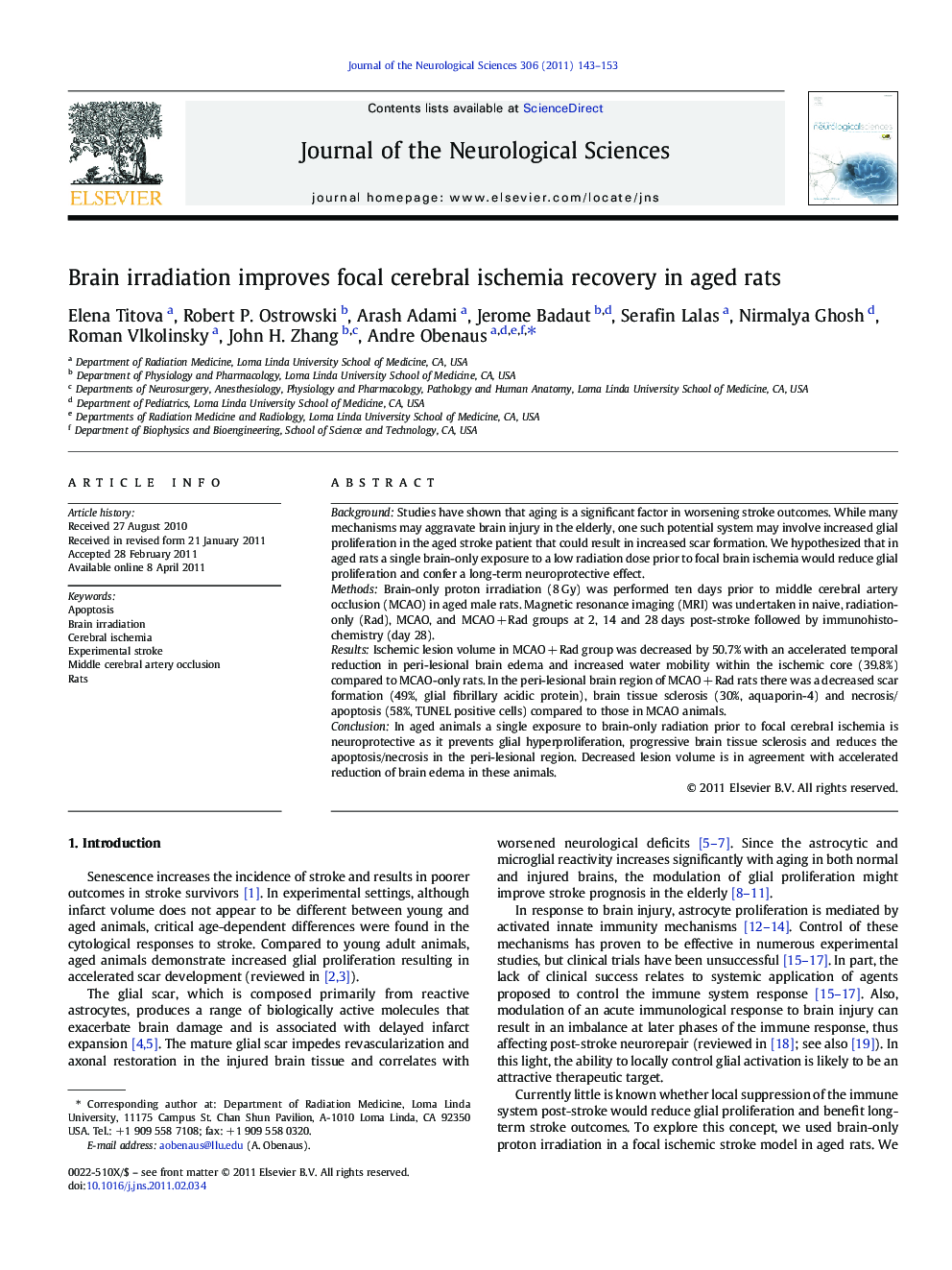| Article ID | Journal | Published Year | Pages | File Type |
|---|---|---|---|---|
| 1914205 | Journal of the Neurological Sciences | 2011 | 11 Pages |
BackgroundStudies have shown that aging is a significant factor in worsening stroke outcomes. While many mechanisms may aggravate brain injury in the elderly, one such potential system may involve increased glial proliferation in the aged stroke patient that could result in increased scar formation. We hypothesized that in aged rats a single brain-only exposure to a low radiation dose prior to focal brain ischemia would reduce glial proliferation and confer a long-term neuroprotective effect.MethodsBrain-only proton irradiation (8 Gy) was performed ten days prior to middle cerebral artery occlusion (MCAO) in aged male rats. Magnetic resonance imaging (MRI) was undertaken in naive, radiation-only (Rad), MCAO, and MCAO + Rad groups at 2, 14 and 28 days post-stroke followed by immunohistochemistry (day 28).ResultsIschemic lesion volume in MCAO + Rad group was decreased by 50.7% with an accelerated temporal reduction in peri-lesional brain edema and increased water mobility within the ischemic core (39.8%) compared to MCAO-only rats. In the peri-lesional brain region of MCAO + Rad rats there was a decreased scar formation (49%, glial fibrillary acidic protein), brain tissue sclerosis (30%, aquaporin-4) and necrosis/apoptosis (58%, TUNEL positive cells) compared to those in MCAO animals.ConclusionIn aged animals a single exposure to brain-only radiation prior to focal cerebral ischemia is neuroprotective as it prevents glial hyperproliferation, progressive brain tissue sclerosis and reduces the apoptosis/necrosis in the peri-lesional region. Decreased lesion volume is in agreement with accelerated reduction of brain edema in these animals.
